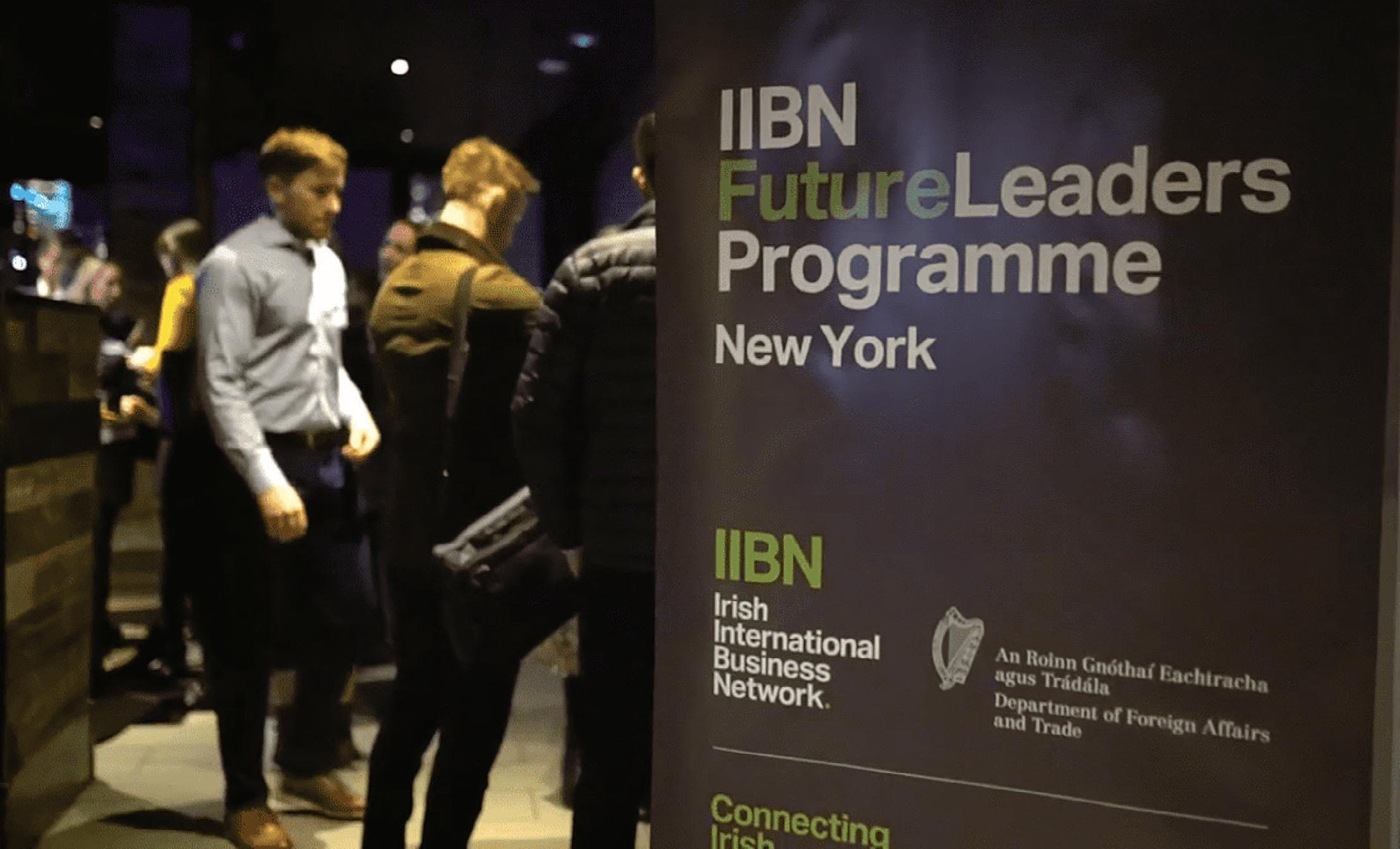
6 minute read
Networking and a PC World
from Global Connections July 2020
by iibn
Networking and a PC (Post Coronavirus) World
It might strike readers as a bit bizarre to be reading an article about Networking when everybody is cooped up like battery hens but the reality is that, eventually, these days will pass and we will get back to something approximating to normality.
Advertisement
BY KINGSLEY AIKINS
These are indeed extraordinary times and today we don't know what tomorrow will bring. It reminds me of a quote from Lenin who said "Sometimes decades pass and nothing happens and then weeks pass and decades happen". So true. So, this is a truly awful and tragic period. However when we look to history we see that even worse events such as the two World Wars and the Great Depression were followed by periods of great growth driven by innovation and creativity. This will be no exception.
With many of us confined to working from home and obeying the rules of social distancing, now might be an opportune time to turn remote working into remote learning, and self-isolation into self-development. Now that you have some time on your own, think about investing in yourself and getting better at something that is always important but rarely urgent. As the old saying goes "When business is down that's when you paint the shop". So don't get down - get ready. Tough times A core truth about business is that everything is about connections. Networks are built first and foremost upon a very basic human need - enjoying people. One conversation or one introduction can change your life but they don't happen lying in bed or sitting at your desk. They happen when you are in motion. They happen when you break your routines. They happen when you talk to people you don't know. So key now is to realise how important your network is going to be and put building a strong and diverse
never last but tough people do. network front and centre. Life is a game of inches and you need every advantage you can get - your network can be the difference maker. It all comes down to three things - changing your attitude, altering your behaviour and learning some new skills. Building a strong and diverse network is a necessity, not a luxury - there is a price to be paid in being an average networker. Having lived and worked in six countries I found networking was the key ingredient that made everything happen. However, let's be honest. There are some real problems with Networking - most people hate the thought of it. It conjures up images of high energy, noisy, smarmy individuals flicking out business cards at a ferocious pace at a Networking event and constantly looking over your shoulder to find someone more interesting to talk to. In addition, Networking is not taught at school or college, it's not a KPI, companies don't have strategies for it, and it doesn't show up in the recruitment process. In short, Networking is important but not urgent. People mix up Networking and sociability. They think that the most extrovert type person is the best networker. In fact, the exact opposite is often the case. Seemingly shy, introvert types can be terrific networkers because they do it with decency and authenticity - they listen, and they ask questions.
Okay- so we agree it's important - what next? This is when you have to ask yourself the brutal question. Is my network good enough for where I want to go in the next five years and the only way you can find an answer
to this is to audit your network. Print it off and divide it into 4 categories as follows -
1. Contact - a name on your database, but, for the life of you, you can't remember who they are. You must have met them at a conference or on a flight and exchanged business cards. This a pretty weak connection.
2. Connection - if they called you, you would know who they are and if you called them they would know who you are. There is nothing happening between you but there is a degree of familiarity.
3. Relationship - you know each other, you are doing something and integrity. It's part of who they
together, you like each other and you trust each other.
4. Friend - I have people I work with who are friends and I have friends who are friends. My definition of this category - somebody you could call on their cell phone on a Sunday afternoon. I don't have many in this category.
The benefit of this audit exercise is that you can clean up your contact database, spot gaps to be filled and identify old connections who are dormant and are worth reconnecting with. Prune your network and watch it grow.
What Networking is all about is building 'Social Capital' which is defined as the resources available to networks. There are two types of knowledge - knowledge that you have which is human capital and knowledge that you can access which is social capital. Social Capital will be a big differentiating factor in this 21st century. Research shows that people with strong and diverse Social Capital live longer, are stronger mentally and physically, earn more money and are happier. They see Networking as a way of escaping their silo, the way they will get their next job and the way to become known (not famous) and develop their own personal brand. Through Networking they hone their listening skills , manage serendipity, become good at public speaking, develop a life more than their job and become comfortable at talking to strangers. They appreciate that opportunities don't float around on clouds - they are attached to people and if you are looking for opportunities you are really looking for people.
Great Networkers don't keep score, understand that Networking is all about giving not getting, are humble and don't brag and know the difference between the most connected and the best connected. They totally appreciate the power of technology and yet at the same time they are hi-tech and hi touch and they network with decency, honesty you in your personal and business
are and how they live their life. They know that trust is the cornerstone of everything - it can take years to build and can be lost in a nanosecond. They also know that it is important to build a network of weak connections who are very different to themselves and counters the tendency we all have to hang around people just like ourselves.
Great networkers also follow a precise four step process of Research, Cultivation, Solicitation and Stewardship which is about taking people on a journey from total ignorance of them and their organisation to a position of passionate zealotry. This takes time, energy and shoe leather.
In essence then, Networking is a learned process and not something you are born with. There is a way of doing it and people who follow the process have a greater chance of success than those who don't.
The whole process of Networking boils down to remembering 3 simple questions in every interaction you have with everybody in your network as follows -
1. What can I do for you?
2. If you were me what would you do?
3. Who do you know who.....?
To learn more about the Networking Training Programmes please contact The Networking Institute on www.thenetworkinginstitute .com or email the author on kingsley@thenetworkinginstitute.com
About the author
Kingsley Aikins is a patron member of IIBN and is the Founder and CEO of The Networking Institute which is based in Dublin. Before that he was CEO of the Worldwide Ireland Funds for 17 years, mostly based in Boston. Prior to that he was the Sydney based representative of Enterprise Ireland and IDA Ireland. He is an Economics and Politics graduate of Trinity College Dublin and a former Leinster rugby player. He and his wife have 3 children and they live in Blackrock, Dublin.




